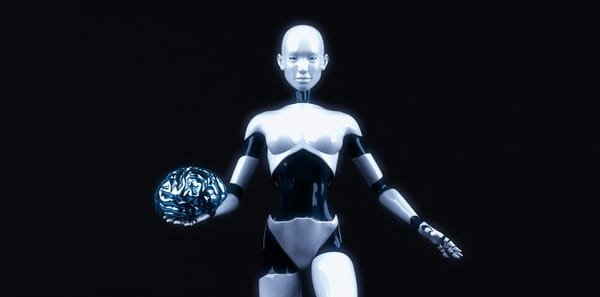Scalpels, Scrubs, and Software: AI in Health Job Descriptions
Welcome to Grey’s Anatomy: The Real One
No, you won’t find Dr. Meredith Grey or dramatic operating room confessions here. Instead, let’s navigate through the real-world corridors of the healthcare industry, where a different kind of magic happens. Similar to any hospital drama, the behind-the-scenes preparation is just as important, if not more, than the main event. Welcome to the realm of health job descriptions, usually treated as the initial diagnostic tool to spot the right talent. But just like medicine, there’s always room for innovation. So, let’s explore how AI is revolutionizing this vital step in the healthcare hiring process, ensuring we get the best talent in the OR, or beyond!
Paging Doctor AI: Why the Health Sector Needs AI
If the health sector had an emergency room for its hiring process, outdated job descriptions would be rushing in on stretchers. These job descriptions are often too generic, lacking personalization, and not tailored to the unique demands of healthcare roles. And, of course, in an industry where precision is paramount, this just won’t do. Imagine a surgeon operating with blunt tools! AI comes in as a seasoned doctor, understanding the nuances of each role and crafting job descriptions that resonate with potential candidates. Whether it’s a surgical nurse, a radiologist, or a hospital administrator, AI analyzes the huge medical field and prescribes job descriptions that are relevant, detailed, and impactful. It’s not just about filling a role but ensuring the right fit for the complicated dance of healthcare. So, whenever you hear “Paging Doctor AI,” understand that it’s a call for smarter, more efficient recruitment in the health sector.
No More Placebos: Real Benefits of AI
Placebos can momentarily convince a patient they’re getting better, but only genuine treatment brings real healing. In the same way, traditional job descriptions may seem effective on the surface, but AI brings actual, impactful changes in recruitment.
First, AI dives deep into the vast pool of healthcare terminology and tailors each description to the specific role, eliminating generic phrasing. Afterward, it addresses the shifting landscape of healthcare needs, making sure that as new specialties emerge, job descriptions evolve accordingly.
Also, AI speeds up the process by swiftly crafting job descriptions while maintaining high quality. And, most importantly, it’s adaptive. As healthcare continues to grow and evolve, so does AI’s ability to respond, ensuring that hiring in the health sector remains precise, relevant, and efficient. No sugar pills here. With AI, the benefits are real, measurable, and transformative.
Medical Errors: When AI Goes Wrong
The world of medicine understands the high stakes of errors, and when leveraging AI powers into the mix, there’s no exception to the diligent attention required. Just as a misdiagnosis may lead to complications, the misuse or misunderstanding of AI can lead to recruitment issues.
There are times that AI may pull keywords from a job description and miss the context, potentially matching a pediatrician’s role with someone who’s only had experience with adults. Or, it may heavily put attention onto certain qualifications and overlook a candidate who, though lacking in one aspect, excels marvelously in others and would be a perfect fit.
Additionally, AI’s language model may be designed to eliminate biased language, but sometimes bias may slip into the AI-generated job descriptions unintentionally. This can result in sidelining the quality of candidates due to factors unrelated to their ability to perform the job.
To keep AI running smoothly without any problems, the key is consistent monitoring, feedback, and refinement. In the same way that doctors and nurses constantly update their knowledge and protocols to avoid medical errors, keeping a close eye on AI is crucial, ensuring it’s performing optimally and facing any challenges that appear.
The Prognosis: Future of AI in Healthcare Jobs
The healthcare landscape is constantly evolving, and with the rapid pace of technological advances, it’s set to transform even more dynamically in the next years. AI, which has already made headlines in a number of industries, is transforming into a vital tool for hiring in the healthcare industry.
Imagine a day in the future when job descriptions are dynamically updated based on the most recent medical advances or shifting patient demographics in addition to being suited to the unique needs of a hospital department. Think of AI-powered systems that can forecast staffing requirements based on epidemiological data, ensuring hospitals are always appropriately staffed during outbreaks or seasonal illnesses.
Nonetheless, as telemedicine and remote consultations are becoming a trend lately, AI could also facilitate global talent recruitment, matching doctors from one continent to urgent needs on another, bridging gaps, and saving lives.
The prognosis is, of course, quite positive. The more we integrate AI wisely, understanding its limits while harnessing its potential, the future of hiring in healthcare shines bright with promise.
Post-Op: Wrapping Things Up
Exploring the complex corridors of healthcare is nothing close to simple. Much like the intricate procedures and treatments that healthcare professionals undertake, ensuring the right fit for medical roles requires precision, understanding, and the right tools. As we’ve seen, AI has emerged as a valuable instrument in this toolkit. Its ability to streamline, personalize, and optimize job descriptions is just the tip of the iceberg. But like any other tool, its efficiency depends on the skill of the user.
As healthcare institutions, it’s crucial we continue to learn, adapt, and refine our approach, making sure that AI serves our ultimate mission: providing the best care by having the best talent onboard. The future is bright, and we are prepared to face the challenges that lie ahead thanks to AI.




